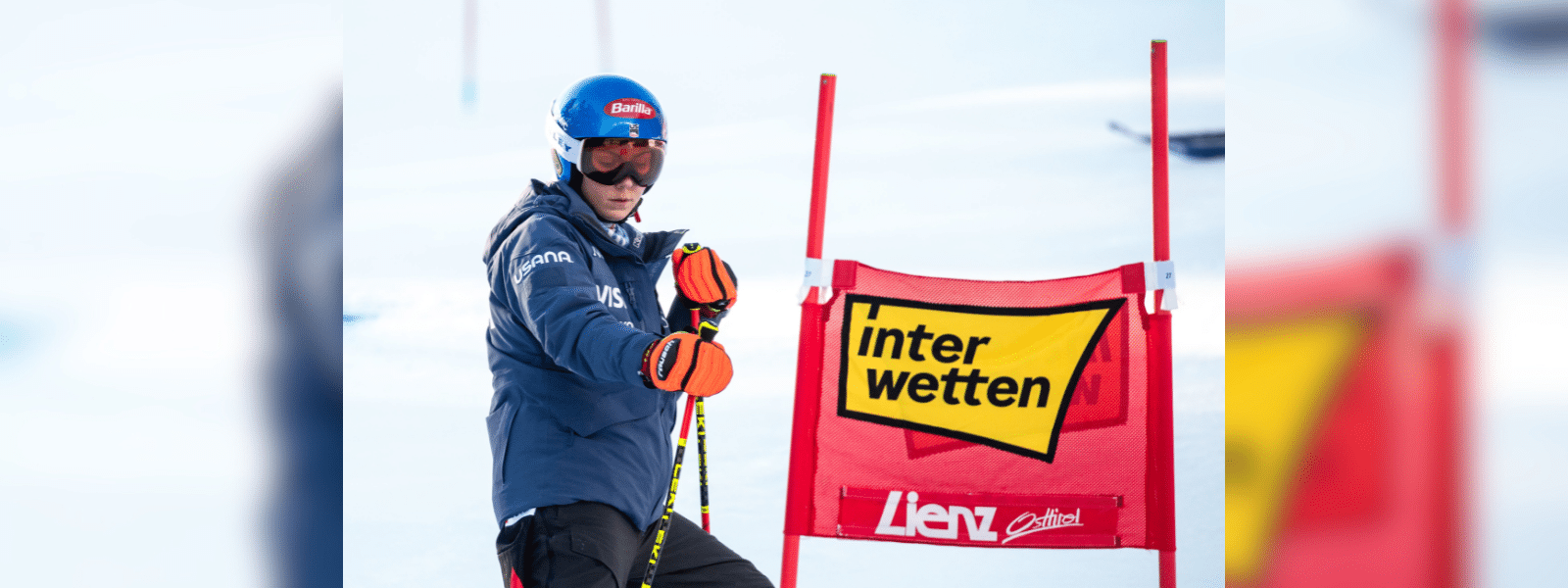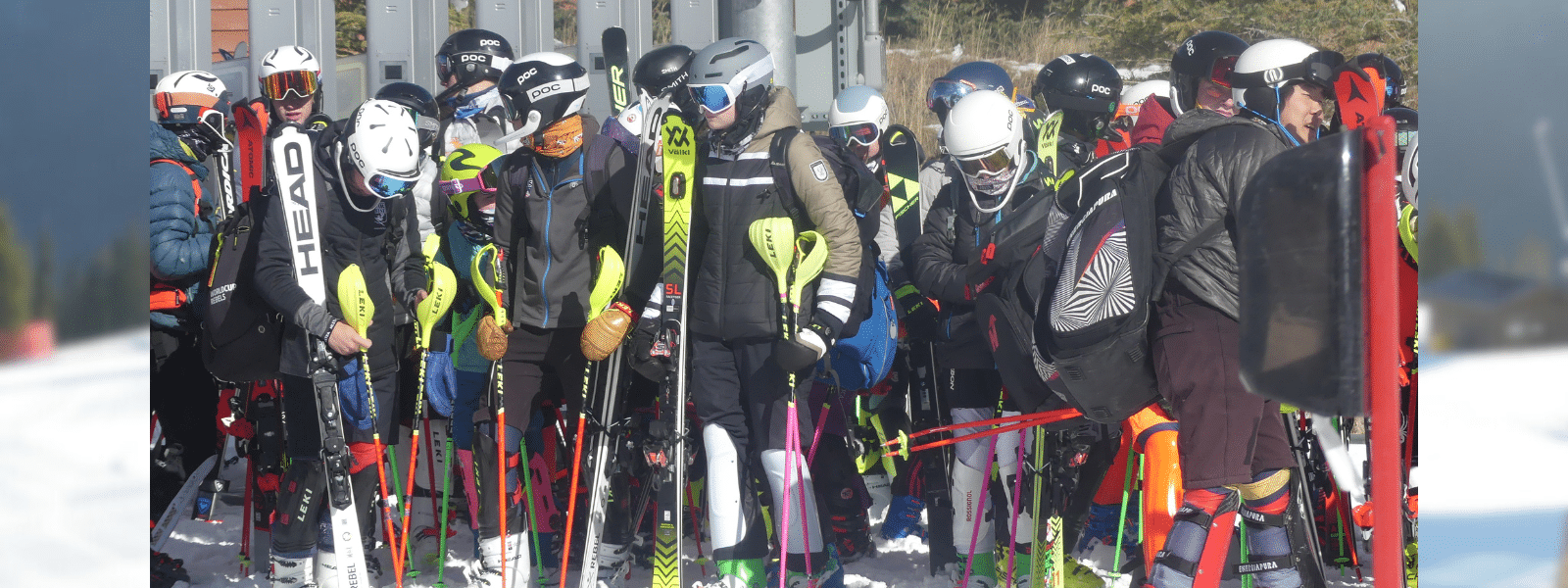Parents Should Do Their Job So Their Young Racers Can Do Theirs
My last column about over-invested ski racing parents caught fire with quite a few views. With the race season just around the corner, I get the feeling that parents are hungry for helpful tips on how best to support their young ski racers this winter. So, to keep that momentum going, this week’s post will focus on how parents can do their job so their racers can do theirs.
For your children to have a great ski racing experience which, for me, means having fun, developing essential life skills, and achieving their goals, both you and your children must understand and fulfill your respective responsibilities and those responsibilities alone. Taylor’s Law of Family Responsibilities states that if family members fulfill their own responsibilities and do not assume others’, then children develop into healthy, happy, and successful people, and parents are happy too. However, problems arise when parents take on the responsibilities of their children and their children are not allowed to assume their own responsibilities. This usurping of responsibilities results in parents taking ownership of ski racing away from their children which prevents them from having that great ski racing experience I just mentioned.
Parent Responsibilities
Your responsibilities revolve primarily around providing your children with all of the basic stuff they need to pursue their ski racing goals. You can give them opportunities to develop by, first of all, writing the checks to cover the costs of our sport and, by extension, having them in a quality junior race program, perhaps summer training camps, and entering them in appropriate races. Practical responsibilities include ensuring that your children have the necessary equipment, proper coaching, and transportation, among other logistical concerns. Psychological and emotional support include providing love, guidance, encouragement, and perspective in their efforts.
Your Children’s Responsibilities
Your children’s responsibilities relate to doing what is necessary to maximize the opportunities that you give them. These responsibilities include giving their best effort, being responsible and disciplined, listening to coaches, being good sports, being prepared, being respectful, and, importantly, being grateful for the incredible opportunities that you give them. Other practical responsibilities include participating in all training programs, getting the most out of coaching, being cooperative, and expressing appreciation to you, their coaches, and everyone else that helps them strive toward their goals.
Taking on Your Children’s Responsibilities
Problems arise when parents take on the responsibilities of their children. If you are assuming your children’s responsibilities, you are communicating two messages to them. First, you don’t think they are competent enough to adequately fulfill their own responsibilities. Your children may internalize this belief, which will hurt their confidence and motivation. Second, ski racing is your thing, not theirs. Your children may then decide that, if ski racing isn’t theirs, then why do it or why try that hard. In both cases, for many children, it also opens the door to avoiding their responsibilities: “Heck, why should I do it if my parents will do it for me?”
A practical way for you to check whether you are taking on your children’s responsibilities is to ask yourself whether you are “micromanaging” their ski racing. Because they are still young and not fully capable of managing themselves, it is a fundamental responsibility for you to manage your children’s lives by instilling important values, providing guidance and direction, setting appropriate boundaries, and attaching consequences to their behavior. Also, as mentioned above, you need to do things that aren’t outside their purview, such as paying the bills and getting them to training and races.
However, micromanaging means getting involved in areas of your children’s ski racing lives that are not your responsibility. As a general rule, any action on your part that interferes with your children’s ownership of their ski racing, their sense of control over their participation, their learning the connection between effort and outcome, and their being held accountable for their actions can be considered micromanagement. For example, if you find yourself packing and carrying their bags, pushing them to watch video, reminding them constantly to do their conditioning, or talking technique with them, you are probably micromanaging your children.
Know Your Responsibilities
The best way to ensure that you and your children assume the appropriate responsibilities is for each of you to know what your responsibilities are. When your children begin a new race season, you should sit down with them and outline each of your responsibilities.
Make a list of what you as a parent will be doing to help your children succeed. Also, ask your children what you can do to help them and what you should avoid doing. Next, have your children make a list of what their responsibilities should be. If you feel your children have missed some important responsibilities, suggest them. Then, identify other individuals who will have responsibilities in your children’s ski racing, such as coaches, and list what responsibilities they should have.
There should also be consequences for not fulfilling responsibilities, for example, if your children don’t take care of their equipment. Ideally, there should be consequences for both your children and you, but it is probably unrealistic for your children to “punish” you in some way (though there are certainly some parents who could use a “time-out”). The best consequences are those that remove something of importance to your children and give them the control to get it back by acting appropriately, for instance, they can’t go to training until they prepare their neglected equipment.
When you know your respective responsibilities, both you and your children gain absolute clarity about what each of your “jobs” are. It also prevents confusion at a later point when either of you step over the line and assume the other’s responsibilities or neglects their own. If you and your children are in agreement on your respective responsibilities, all should run quite smoothly. On the other hand, if there is conflict related to each of your responsibilities, trouble likely lies ahead. To prevent problems from arising once winter arrives, you’ll want to discuss before the season starts how you can all get on the same page about who is responsible for what.
Want to be the best sport parent you can be? Take a look at my online course, Prime Sport Parenting 505: Raise Successful and Happy Athletes.





















